Published
- 12 min read
Azure Alternatives in 2025: Top Cheaper and Smarter Cloud Platforms

When businesses think of cloud hosting, Microsoft Azure is often one of the first options considered. It offers a wide network of data centers, enterprise-ready integrations, and support for a broad range of workloads. Azure is built for scale and comes packed with advanced features that large organizations rely on.
For smaller teams, startups, and SMBs, though, Azure often feels overwhelming. The pricing structure is complex, hidden costs can add up quickly, and managing deployments usually requires a dedicated DevOps team. What works for enterprises can become too costly and complicated for agile businesses that need speed and simplicity.
This is why many teams are exploring Azure alternatives that provide predictable pricing, faster deployments, and a developer-friendly experience. Platforms like Kuberns are designed to remove cloud complexity, helping teams build, deploy, and scale full-stack apps without the enterprise overhead.
Why Look Beyond Azure?
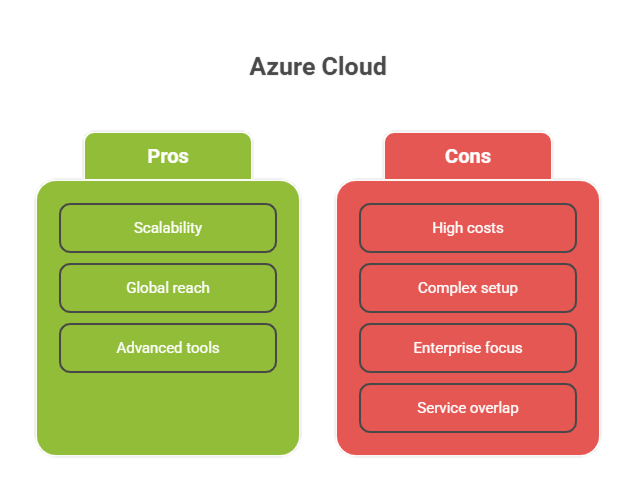 Azure is one of the “big three” cloud providers, alongside AWS and Google Cloud. It is a robust platform designed to serve enterprises at a global scale. However, the very features that make it attractive to large corporations often create challenges for smaller teams and fast-moving businesses.
Azure is one of the “big three” cloud providers, alongside AWS and Google Cloud. It is a robust platform designed to serve enterprises at a global scale. However, the very features that make it attractive to large corporations often create challenges for smaller teams and fast-moving businesses.
1. High and unpredictable costs Azure’s pricing model is complex. Beyond the base infrastructure fees, teams often face additional charges for bandwidth, storage, transactions, monitoring, and snapshots. This makes it difficult to forecast monthly bills, and costs can spike quickly when usage grows. For startups or SMBs with tight budgets, this unpredictability is a major pain point.
2. Complex setup and maintenance Deploying and managing applications on Azure usually requires specialized cloud expertise. From configuring resource groups to setting up virtual networks and managing security policies, most teams need a dedicated DevOps engineer or an external consultant. This increases both operational overhead and time to market.
3. Enterprise-first focus Azure’s service catalog is built with large corporations in mind. While enterprises benefit from advanced compliance, integrations, and governance tools, smaller teams rarely need this level of complexity. For them, Azure feels bloated and unnecessarily complicated compared to more streamlined platforms.
4. Service overlap and confusion With hundreds of services, many of them with overlapping functionality, choosing the right option is not straightforward. For example, Azure offers multiple ways to deploy containers, databases, and monitoring tools, each with subtle differences. This creates confusion and slows down decision-making.
For startups, independent developers, and SMBs, these factors often result in wasted time, higher costs, and added frustration. This is why many are actively seeking Azure alternatives that offer simpler pricing, easier deployment workflows, and a developer-first experience.
Top Azure Alternatives in 2025
1. Kuberns – AI-Powered Cloud Hosting
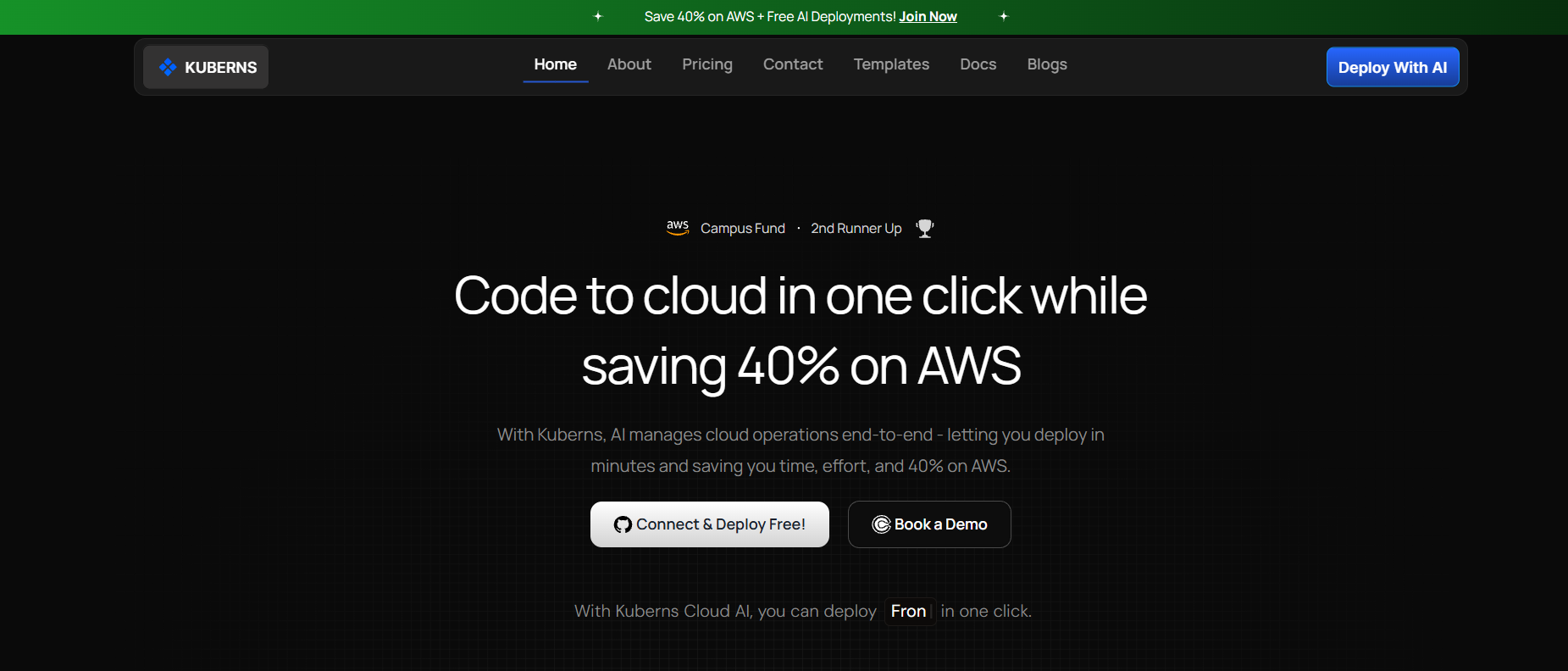 If you are tired of complex cloud setups, Kuberns is the smartest Azure alternative. It is designed for developers and teams that want fast, cost-effective deployments without dealing with DevOps overhead. Unlike Azure, which charges separately for almost every resource, Kuberns simplifies the process with transparent pricing and built-in features.
If you are tired of complex cloud setups, Kuberns is the smartest Azure alternative. It is designed for developers and teams that want fast, cost-effective deployments without dealing with DevOps overhead. Unlike Azure, which charges separately for almost every resource, Kuberns simplifies the process with transparent pricing and built-in features.
Key Features of Kuberns:
- One-click deployment from GitHub or GitLab
- Integrated CI/CD pipeline without extra tools
- Built-in monitoring, logs, and alerts
- Up to 40% cost savings on AWS-backed infrastructure
- AI-driven auto-scaling for performance and efficiency
- Zero per-user fees and no hidden charges
Kuberns is ideal for startups, agencies, and SMBs that want to focus on product development rather than infrastructure management. It combines the flexibility of cloud hosting with the simplicity of a platform-as-a-service.
2. DigitalOcean
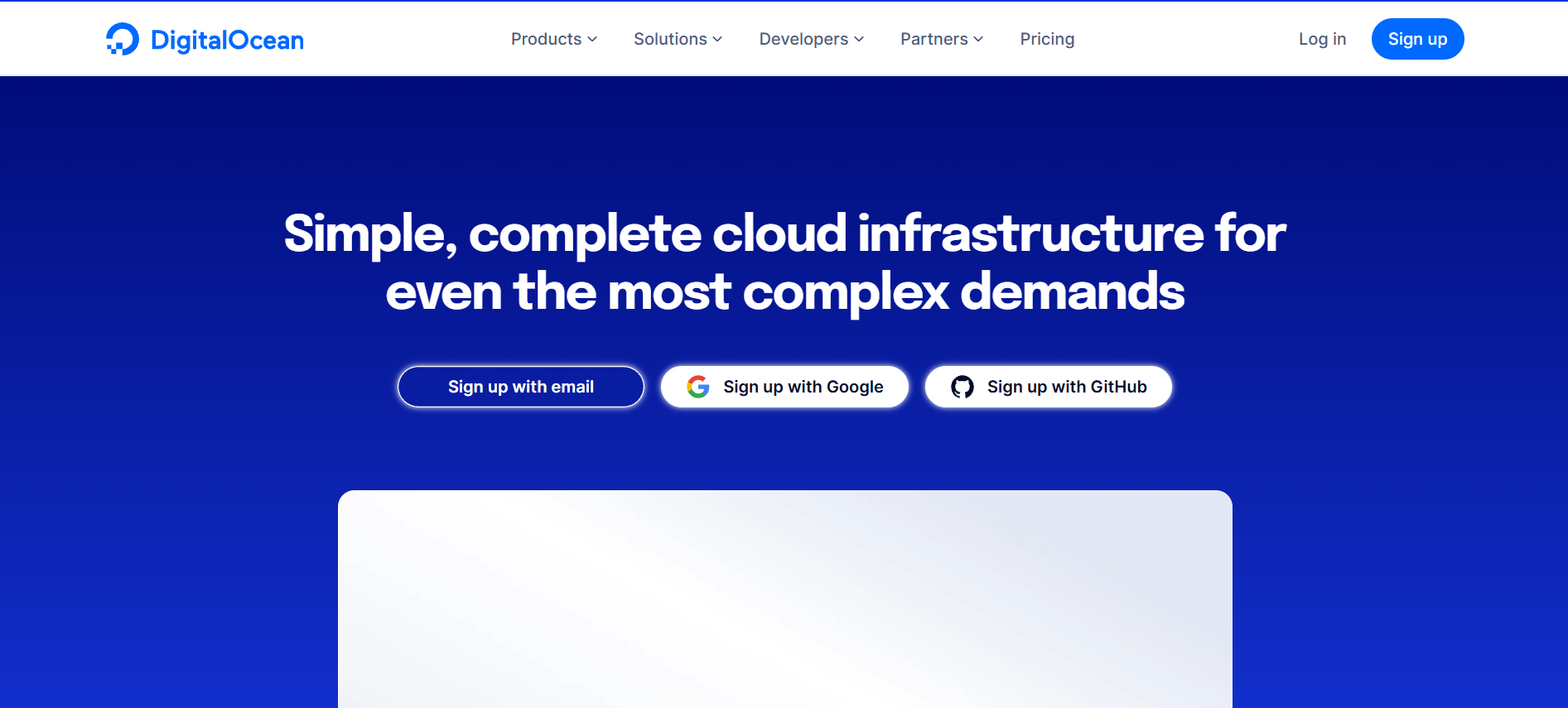 DigitalOcean has positioned itself as one of the most developer-friendly cloud providers. Its strength lies in simplicity and predictable monthly pricing, which makes it appealing for startups, freelancers, and small to mid-sized businesses. Developers often choose DigitalOcean for hosting web apps, APIs, databases, and SaaS products because it offers a clean interface and straightforward setup without the steep learning curve of Azure.
DigitalOcean has positioned itself as one of the most developer-friendly cloud providers. Its strength lies in simplicity and predictable monthly pricing, which makes it appealing for startups, freelancers, and small to mid-sized businesses. Developers often choose DigitalOcean for hosting web apps, APIs, databases, and SaaS products because it offers a clean interface and straightforward setup without the steep learning curve of Azure.
Unlike Azure, where costs can vary widely depending on usage, DigitalOcean provides flat and transparent pricing, allowing teams to plan budgets more confidently. Its ecosystem includes managed Kubernetes, databases, and marketplace integrations, giving smaller teams the ability to deploy production-ready environments quickly.
Best For: Independent developers, agencies, and SMBs that need simple infrastructure and predictable costs.
- Pros: User-friendly UI, transparent monthly pricing, quick setup, strong documentation.
- Cons: Limited advanced enterprise features, scaling to larger workloads can become expensive.
If you want to explore how DigitalOcean compares with other providers in 2025, check out our guide on DigitalOcean competitors.
3. Vultr
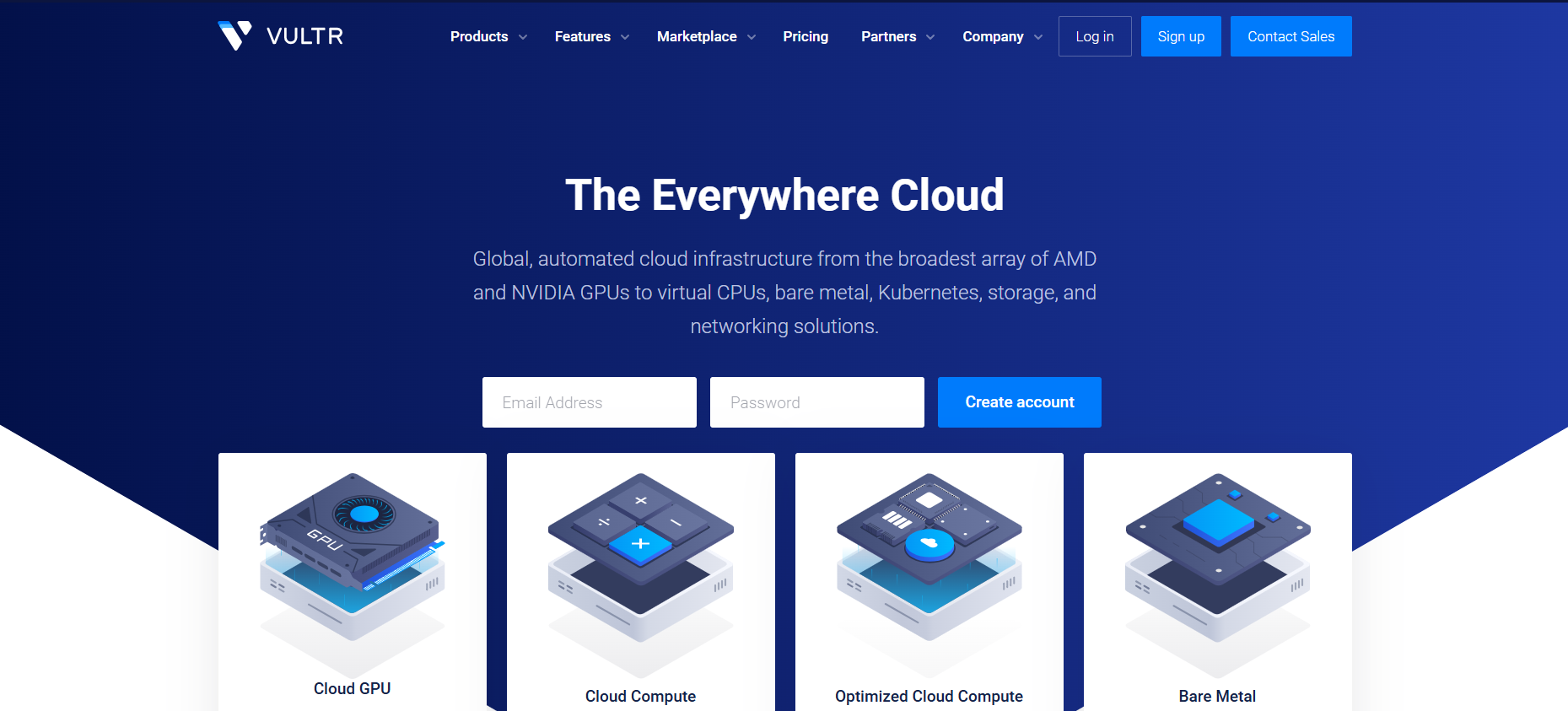 Vultr is a cloud provider that has grown rapidly thanks to its global network of data centers and competitive pricing. With availability across multiple regions, it allows developers to deploy applications closer to their users, which improves performance and reduces latency. Vultr is especially popular with independent developers and small businesses that need reliable virtual machines without the overhead of enterprise-focused platforms like Azure.
Vultr is a cloud provider that has grown rapidly thanks to its global network of data centers and competitive pricing. With availability across multiple regions, it allows developers to deploy applications closer to their users, which improves performance and reduces latency. Vultr is especially popular with independent developers and small businesses that need reliable virtual machines without the overhead of enterprise-focused platforms like Azure.
The platform offers a mix of compute instances, storage options, and bare metal servers, making it flexible for hosting websites, SaaS applications, APIs, and even gaming servers. Its pricing is straightforward compared to Azure, and setup is fast, making it a practical option for teams that want to get projects live quickly.
Best For: Developers and SMBs looking for affordable, globally distributed infrastructure with minimal setup complexity.
- Pros: Cost-effective virtual machines, fast and simple deployment, strong global presence.
- Cons: Limited managed services, not ideal for complex enterprise applications or teams needing advanced integrations.
If you are evaluating Vultr against other cloud platforms, take a look at our in-depth comparison of the best Vultr alternatives.
4. Linode (Akamai Cloud)
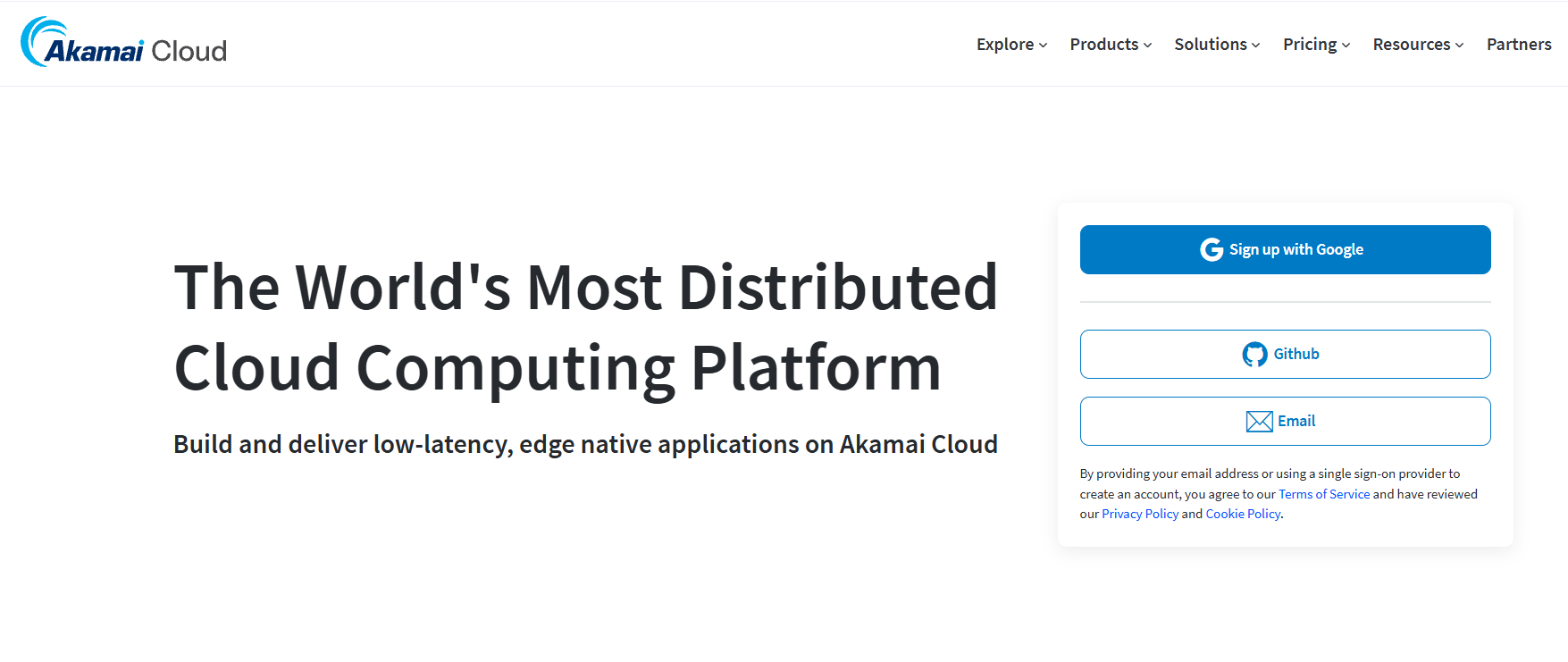 Linode, now part of Akamai, is known for providing straightforward cloud hosting that prioritizes performance and affordability. It has long been a favorite among developers who want reliable infrastructure without the steep learning curve or unpredictable billing often associated with Azure. After its acquisition by Akamai, Linode has gained access to Akamai’s massive global content delivery network, strengthening its reach and performance for businesses worldwide.
Linode, now part of Akamai, is known for providing straightforward cloud hosting that prioritizes performance and affordability. It has long been a favorite among developers who want reliable infrastructure without the steep learning curve or unpredictable billing often associated with Azure. After its acquisition by Akamai, Linode has gained access to Akamai’s massive global content delivery network, strengthening its reach and performance for businesses worldwide.
Linode’s value lies in its transparent pricing model. Users pay predictable rates for compute instances, storage, and bandwidth, which makes it easier for startups and SMBs to control costs. In addition to infrastructure, Linode also offers managed Kubernetes, object storage, and load balancing, covering most of the core needs for modern web applications.
Best For: Developers, startups, and cost-conscious businesses that want affordable cloud infrastructure with solid performance and responsive customer support.
- Pros: Predictable pricing, strong customer support, now backed by Akamai’s global network.
- Cons: Smaller ecosystem of services compared to Azure, fewer advanced enterprise integrations.
5. Hetzner
 Hetzner is a German-based cloud provider that has earned a reputation for offering some of the lowest prices in the cloud hosting market. It is especially popular among developers and small businesses that want reliable infrastructure at a fraction of the cost of larger providers like Azure. Hetzner’s services include virtual machines, dedicated servers, block storage, and load balancers, making it a versatile option for hosting everything from personal projects to production workloads.
Hetzner is a German-based cloud provider that has earned a reputation for offering some of the lowest prices in the cloud hosting market. It is especially popular among developers and small businesses that want reliable infrastructure at a fraction of the cost of larger providers like Azure. Hetzner’s services include virtual machines, dedicated servers, block storage, and load balancers, making it a versatile option for hosting everything from personal projects to production workloads.
What sets Hetzner apart is its affordable and transparent pricing. Teams that are price-sensitive often choose Hetzner because it allows them to run high-performance workloads without the unpredictable billing that comes with Azure. However, the trade-off is that Hetzner’s infrastructure is primarily concentrated in Europe, which may not be ideal for businesses targeting users in North America or Asia.
Best For: Developers, startups, and SMBs with European user bases that want maximum value for money.
- Pros: Extremely cost-effective, reliable hardware, transparent billing.
- Cons: Limited global reach outside Europe, smaller ecosystem of managed services compared to Azure.
If you are considering Hetzner but want to compare it with similar providers, check out our guide on the best Hetzner alternatives.
6. Google Cloud Platform (GCP)
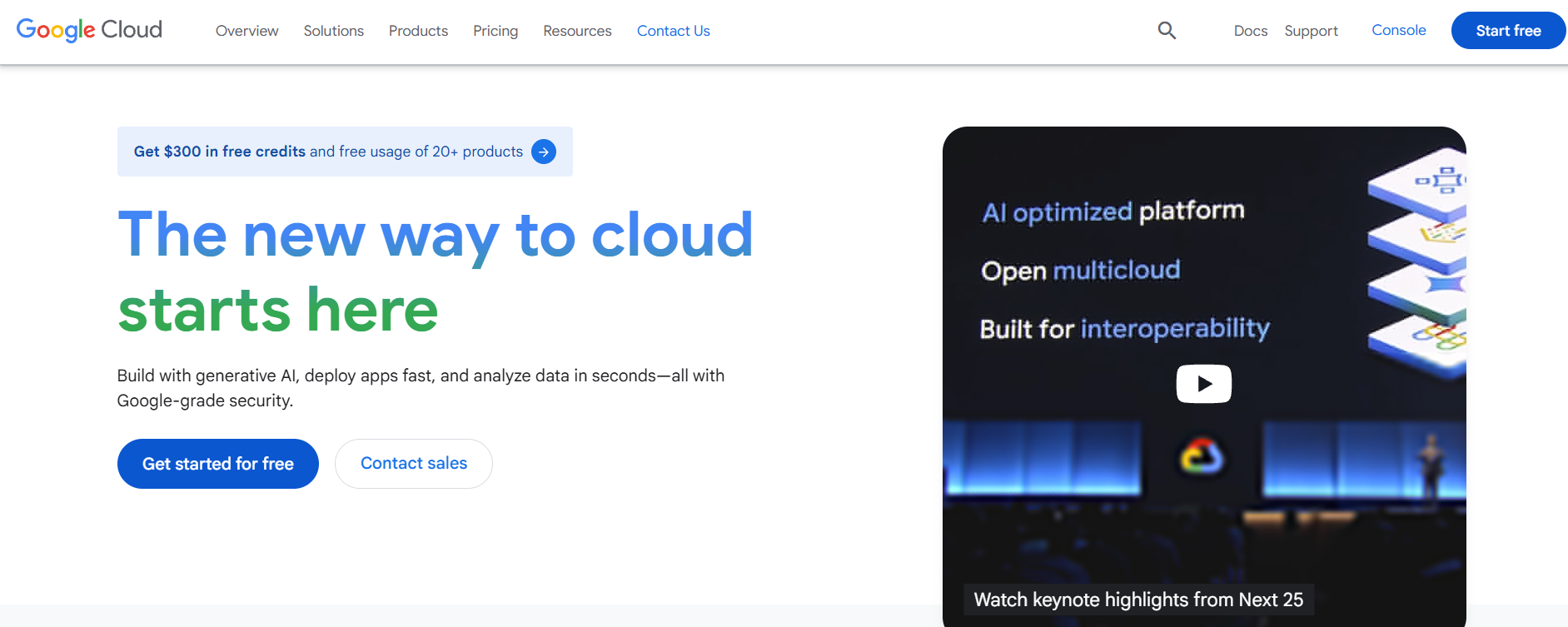 Google Cloud Platform is one of the major players in the cloud space and is often considered a direct competitor to Azure. It is particularly strong in AI, machine learning, and data analytics, thanks to Google’s deep expertise in these domains. Services like BigQuery, TensorFlow, and Vertex AI give GCP an edge for organizations that want to build data-driven or AI-powered applications.
Google Cloud Platform is one of the major players in the cloud space and is often considered a direct competitor to Azure. It is particularly strong in AI, machine learning, and data analytics, thanks to Google’s deep expertise in these domains. Services like BigQuery, TensorFlow, and Vertex AI give GCP an edge for organizations that want to build data-driven or AI-powered applications.
In terms of infrastructure, GCP offers global data centers, managed Kubernetes (GKE), serverless functions, and a wide range of storage and compute options. Pricing is generally competitive with Azure, and GCP also provides sustained-use discounts that can make it more affordable for long-running workloads. However, the platform comes with its own complexity, and smaller teams without cloud experience may find the learning curve steep.
Best For: Enterprises, startups, or research teams that prioritize AI, ML, and large-scale data processing but want an Azure alternative with similar global capabilities.
- Pros: Industry-leading AI and analytics tools, strong global infrastructure, competitive pricing with discounts for sustained use.
- Cons: Complex to manage, steep learning curve, may not be the best fit for smaller teams or projects that need quick, simple deployments.
Why Kuberns is the Best Azure Alternative
Unlike Azure, which often requires teams to piece together multiple services and rely on dedicated DevOps resources, Kuberns consolidates everything into one platform. It is built for developers, startups, and growing businesses that want a straightforward way to build, deploy, and scale applications without the complexity of managing cloud infrastructure.
With Kuberns, you get a true all-in-one deployment experience. The platform combines code integration, CI/CD pipelines, monitoring, logging, and auto-scaling into a single interface. Instead of juggling multiple Azure services for compute, storage, scaling, and monitoring, Kuberns makes it possible to launch production-ready apps in minutes. You can see how it works in our detailed guide on one-click automated deployment.
Key Advantages of Kuberns over Azure:
- Cost Savings: Host your applications on AWS-backed infrastructure at up to 40% lower cost compared to Azure.
- One-Click Deployments: Push code from GitHub or GitLab and deploy instantly, with integrated CI/CD pipelines included.
- Full Transparency: No hidden charges, no per-user fees, and clear pricing that helps teams forecast costs.
- AI-Driven Scaling: Applications scale automatically based on demand, ensuring performance while preventing unnecessary cloud spend.
- Built-In Monitoring and Alerts: Logs, metrics, and system health checks are included by default, removing the need to purchase and configure separate services.
For teams that value simplicity, performance, and cost efficiency, Kuberns delivers everything in a single platform. It eliminates the overhead of managing multiple services, reduces DevOps complexity, and gives businesses a faster, smarter alternative to Azure.
Conclusion
Azure is powerful, but not always practical. For many teams in 2025, the smarter choice is to move to platforms that are simpler, more affordable, and more developer-friendly. Whether you pick DigitalOcean, Vultr, Hetzner, or GCP, you will save time and money compared to Azure.
But if you want the best balance of cost savings, simplicity, and performance, Kuberns stands out as the top Azure alternative.
👉 Start your free trial today and see how easy cloud deployment can be with Kuberns.

FAQs
What are the main disadvantages of Azure? High costs, complex setup, and enterprise-heavy features make Azure less suitable for smaller teams.
Which is the best Azure alternative for startups? Kuberns is the best fit for startups, offering 40% savings, one-click deployments, and no DevOps overhead.
Is Kuberns cheaper than Azure? Yes. Kuberns hosts apps on AWS-backed infrastructure at up to 40% lower cost, with transparent pricing and no hidden fees.
Which is the cheapest Azure alternative? Hetzner is the cheapest, but Kuberns provides the best mix of affordability and features.